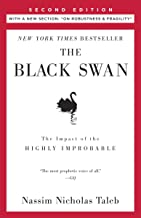We use a lot of expressions in everyday speech, and their origins are frequently lost to history. But I’ve found an interesting exception.
A friend recently asked me if I thought the coronavirus pandemic is a black swan event. This was a new one; I’d never heard that phrase before. I went scrambling to the Internet.
There is such an expression. The Financial Times website (http://markets.ft.com/research/Lexicon/Term?term=black-swan) has a comprehensive definition —
An event or occurrence that deviates beyond what is normally expected of a situation and that would be extremely difficult to predict. This term was popularized by Nassim Nicholas Taleb’s book “The Black Swan: The Impact of the Highly Improbable.” Mr Taleb is a finance professor and former Wall Street trader.
He took his title from the shock that Europeans experienced when they discovered black swans in Australia. Until then, their data told them that all swans were white, so the discovery was unexpected.
A black swan in markets is an event that has not occurred in the past, thus rendering useless risk management models based on historic data. Such a risk model would assume that all swans were white.
Mr Taleb suggests his idea has been misunderstood. The problem, he told the CFA Institute in 2008, is not that black swans occur often. Rather, it is that they have truly catastrophic and unpredictable effects when they do happen, and so risk managers should concentrate on guarding against them.
Yes, I would certainly call the current pandemic a “black swan event.” The last time anything like this happened was the 1918 Spanish flu outbreak, before social media. As I sit here, writing this under quarantine, I’m thinking we are definitely in uncharted and potentially catastrophic waters.

By the way, the second edition of Mr. Taleb’s book is still in print — https://www.amazon.com/s?k=nassim+nicholas+taleb+the+black+swan&crid=1FFZT576ZEKSO&sprefix=Nassim+Nicholas+Taleb%2Caps%2C215&ref=nb_sb_ss_i_3_21.
This is an interesting expression that fits right into my personal fascination with the English language. I just wish there was a less painful way to learn about it.
